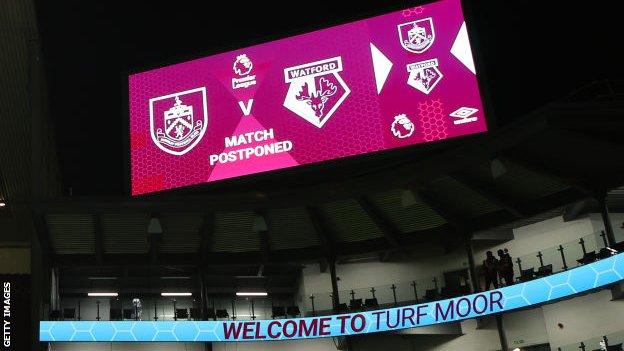ARTICLE AD BOX
 Burnley v Watford is the next Premier League game set to be played on 5 February after already being postponed twice
Burnley v Watford is the next Premier League game set to be played on 5 February after already being postponed twicePremier League clubs will have to prove they have at least four Covid-19 cases to get matches called off under new guidance announced today.
A total of 22 top-flight games were postponed in December and January because of the pandemic.
The rules will be introduced before the next league fixture on 5 February.
A Premier League statement said the rules are designed "to protect the wellbeing of players and staff" and "maintain the sporting integrity".
Previously, clubs could request a match to be postponed if they did not have 13 available players as well as a goalkeeper.
However, teams were claiming opponents were including injured players as well as those on Africa Cup of Nations duty in Cameroon in the figures of players available.
Earlier this month, Tottenham said they were "extremely surprised" at the decision to call off their game against Arsenal, which had been scheduled to take place on 16 January.
However, the Gunners, who had four players at the tournament as well as a number of injuries and Covid cases, said they "reluctantly" requested a postponement and were "disappointed" the game had to be rearranged.
The Premier League said requests for postponements would continue to be assessed on "a case-by-case basis" and added: "Throughout the pandemic, the Premier League has adapted its guidance in response to the wider public health situation.
"The guidance was last updated in December in response to the emergence of the Omicron variant.
"The Premier League Board examines a number of factors, including the ability of a club to field a team; the status, severity and potential impact of Covid-19; and the ability of the players to safely prepare for and play the match."

- Our coverage of your Premier League club is bigger and better than ever before - follow your team and sign up for notifications in the BBC Sport app to make sure you never miss a moment


 2 years ago
74
2 years ago
74








 English (US)
English (US)